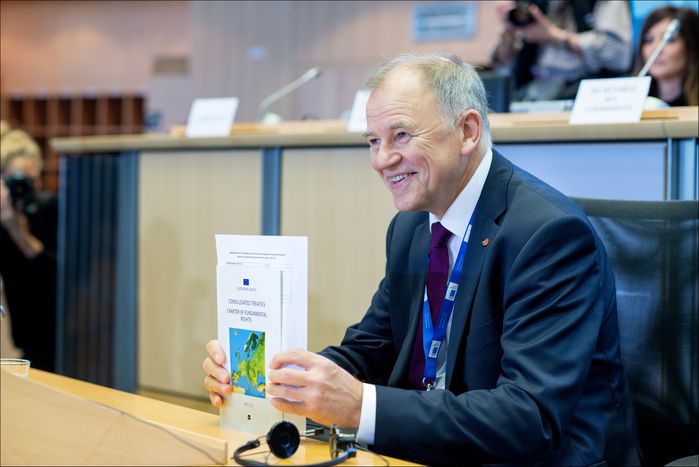
Andriukaitis wants an EU health system for everyone
Published on
During his first health ministers meeting in Brussels, the Commissioner Vytenis Andriukaitis specified further steps towards an effective healthy Europe.
The first council of health ministers, on the 1st of December, was the starting point for Health and Food Safety Commissioner, Vytenis Andriukaitis, to share his ideas and vision on EU health policy. In fact, Andriukaitis seems to be very pragmatic as he wants to see things happen rapidly. “Moving around Europe is taken for granted, so systems should be in place that can take care of everyone wherever they are,” said the Commissioner to the European Voice. What Andriukaitis is proposing is a common EU health system able to respond to the needs of every European citizens in all member states. Naturally, the former minister from Lithuania is well aware of national sovereignty when it comes to health, proposing advanced cooperation between the member states. “I want to work together with MEPs and with prime ministers and national parliaments and all stakeholders,” he said.
Some of his main priorities include the expansion of mechanisms able to foster health system performance in the member states, this way they can exchange experiences, acquire knowledge and discover best practices. Andriukaitis defends a greater collaboration in delivery, especially when it comes to vaccines distribution. “At present, member states have different timetables for vaccines. We should co-ordinate calendars and bring on new vaccines”. The Health Commissioner is eager to the adoption of Council conclusions seeking to improve the safety and innovation in medical and in vitro devices in the EU as well as patient’s benefits, a topic which will necessarily lead to the issue of medical product prices. “I welcome the member states’ wish for the Commission to support the exchange of information between themselves on prices and price policies,” he said.
According to the council’s new measures on patient safety and innovation, health ministers asked member states to promote education and training of healthcare staff on patient safety; develop blame-free reporting by healthcare staff or patients and blame-free handling of error; strengthen programmes to prevent infections; encourage patients and their families to have a say about their treatment, and the speeding up of assessment and approval procedures for new medicines.
As for the controversial genetically modified organisms, Andriukaitis is about to present alternatives to the revised legislation. Also, the Commissioner is focusing on the reduction of food waste which he considers “unacceptable in a world where too many people go hungry”.



